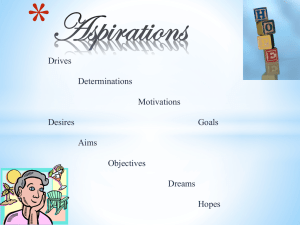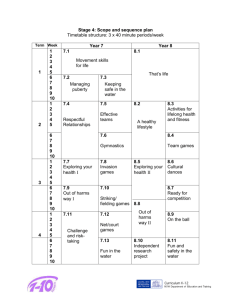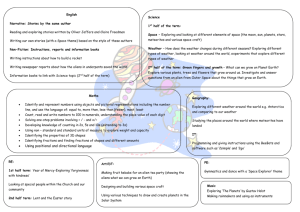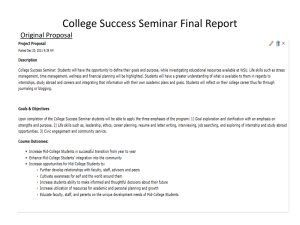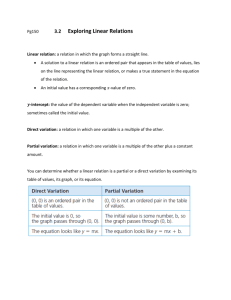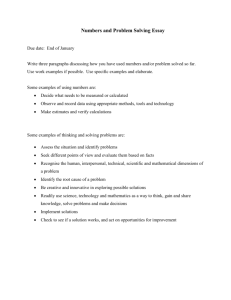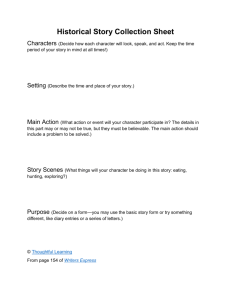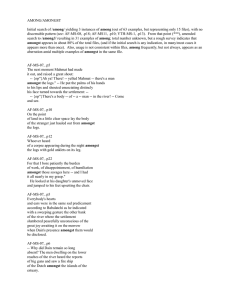L5 Leadership Framework Statements with their expansions
advertisement
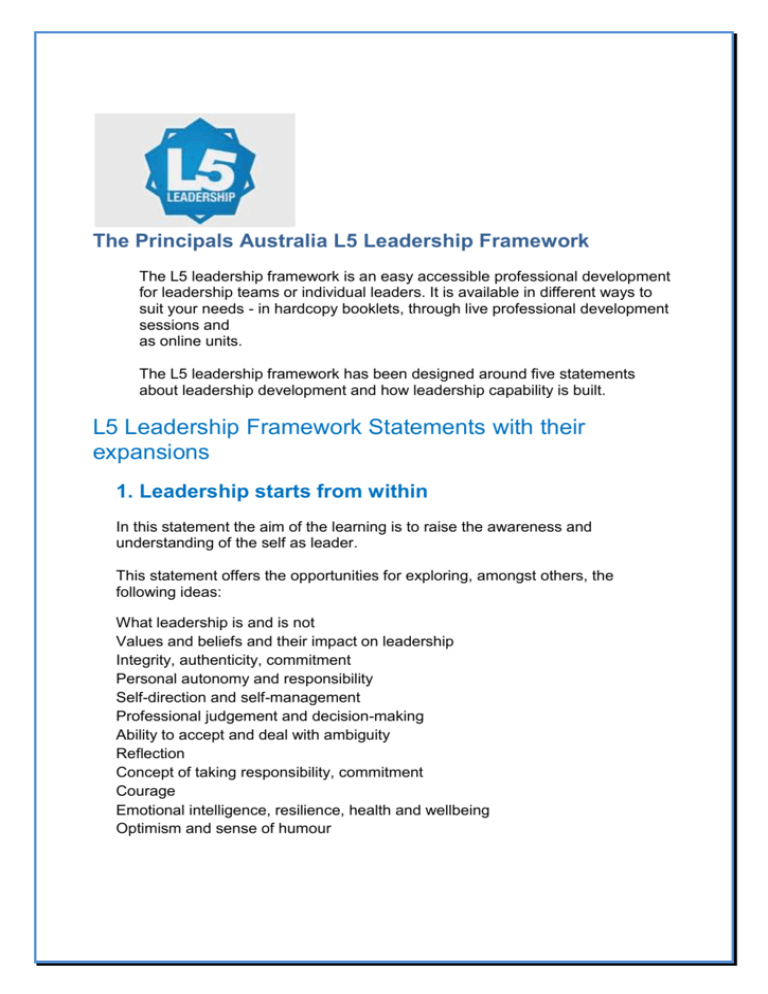
The Principals Australia L5 Leadership Framework The L5 leadership framework is an easy accessible professional development for leadership teams or individual leaders. It is available in different ways to suit your needs - in hardcopy booklets, through live professional development sessions and as online units. The L5 leadership framework has been designed around five statements about leadership development and how leadership capability is built. L5 Leadership Framework Statements with their expansions 1. Leadership starts from within In this statement the aim of the learning is to raise the awareness and understanding of the self as leader. This statement offers the opportunities for exploring, amongst others, the following ideas: What leadership is and is not Values and beliefs and their impact on leadership Integrity, authenticity, commitment Personal autonomy and responsibility Self-direction and self-management Professional judgement and decision-making Ability to accept and deal with ambiguity Reflection Concept of taking responsibility, commitment Courage Emotional intelligence, resilience, health and wellbeing Optimism and sense of humour 2. Leadership is about influencing others The aim of this second statement is to raise the awareness and understanding of the nature of power and change. This statement offers the opportunities for exploring, amongst others, the following ideas: Authority, power and influence Presence and persuasion and being politically savvy Consultation, information, consultation and engagement Developing trust, creating respect, developing a positive culture Leading people through building positive relationships Building and sustaining a compelling vision with others in the school community Managing change Challenge, conflict and resolution Advocacy 3. Leadership develops a rich learning environment The third statement focuses on leaders as learners and as leaders of learning and how professional learning supports organisational improvement and growth and student outcomes. This statement offers the opportunities for exploring, amongst others, the following ideas: Teaching and learning as the main business of the school Leadership of teaching and learning through a whole school approach Creating effective learning environments for all students Student centred learning and learning how to learn Designing flexible curriculum with scope and sequence across the school Collaboration, reflection, dialogue and openness for improving teaching practice Provision of multidisciplinary learning interventions Rigour, inquiry and the use of evidence and school data to build practice The design of supportive professional development Mentoring, coaching, peer observation and support Integrated behaviour management Assessment that builds learning for students and reporting that informs students parents and carers 4. Leadership builds professionalism and management capability The fourth statement focuses on the leader’s role in effectively and efficiently managing the school as an organisation, and the professionalism that must underpin this work. In particular, processes should include those in which people can develop the requisite understandings, skills and abilities, and critical reflective practices. This statement offers the opportunities for exploring amongst others the following ideas: Schools as complex systems, Service leadership Efficiency and effectiveness, quality assurance and accountability, Monitoring, reviewing and evaluating, Data management, Ethical and legal obligations, Risk management, Planning, implementing and evaluating school improvement, Financial management, including probity, legal requirements and budget development, Human resource management, including performance management and industrial relations, Physical resource management. 5. Leadership inspires leadership actions and aspirations in others In the final statement the focus is on the responsibility of educational leaders to promote and support widespread and sustainable leadership throughout the school. In particular, processes should enable people to engage in the observation and practice of leadership through sharing, critical reflection, and celebrating success. This statement offers the opportunities for exploring amongst others the following ideas: Change and innovation Risk taking Effective and empowering delegation Providing opportunities Mentoring and coaching Empowering others Community partnerships Student leadership Networking Sustainability Enjoyment Legacy
